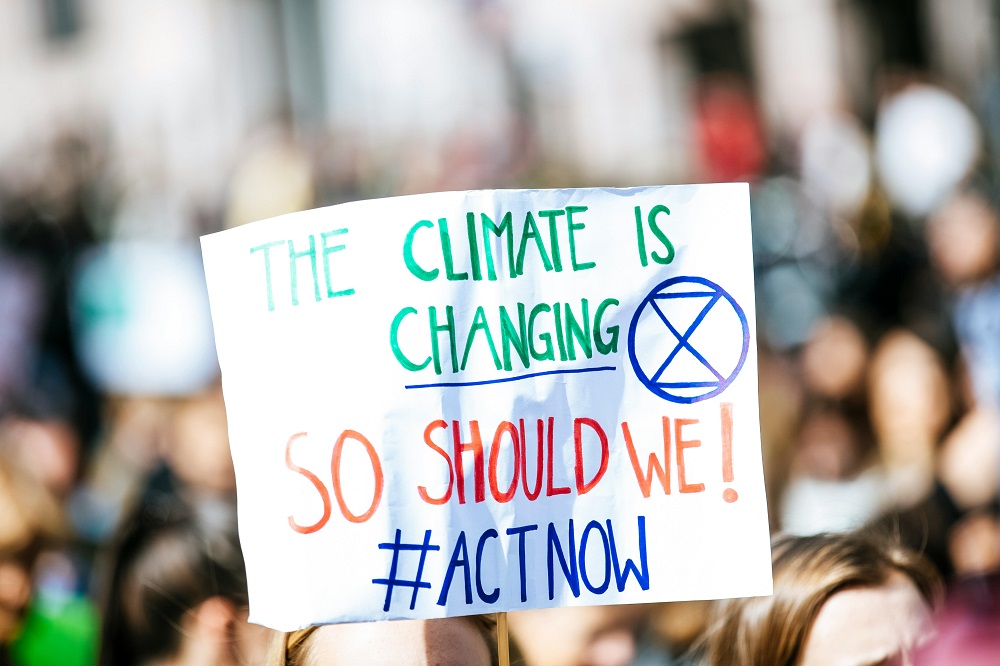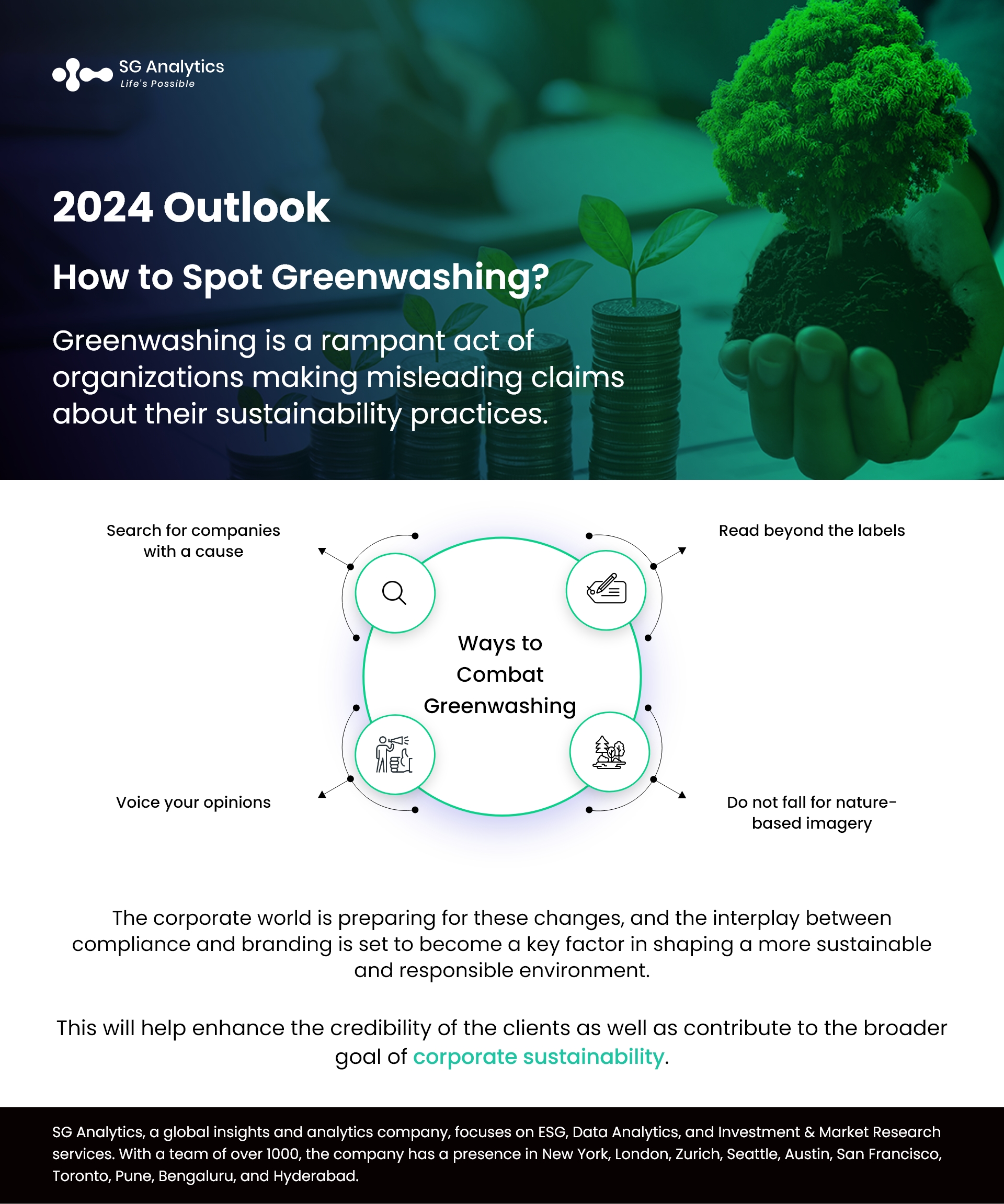In the last few years, several organizations have been focusing on setting and declaring their net-zero targets well ahead of their timelines. They make use of social media platforms to showcase their actions in their fight against climate change.
Greenwashing-related buzzwords are increasingly gaining traction among corporates and financial markets, and regulators, investors, and climate evangelists are increasingly growing suspicious of these terminologies as well as their authenticity.
What is Greenwashing?
The term greenwashing or green sheen describes the situation where an organization makes misleading environmental claims, leading its customers to believe that its products and practices are eco-friendly. Even though the organization claims that its products are environmentally friendly or that its practices are sustainable, oftentimes, they are not.
Companies use environmental claims to paint a different picture in front of their customers, who are exploring ways to be environmentally conscious and want to become a part of the ethical buying community. Unfortunately, some companies also try to profit unfairly from the green marketing trend by making false claims. They market a product as environmentally friendly or created using sustainable practices. However, these environmental marketing claims are fabricated.
Read more: How to put Sustainability and Innovation at the Heart of your Business?
Importance of Spotting Greenwashing in 2025
The goal of greenwashing is to make a profit, not actually to benefit the environment in any way. Companies that employ greenwashing tactics to market their products or services are taking advantage of the growing consumer demand for eco-friendly products. They aim to sell their product or service, and green marketing often helps them to achieve this.

With green products finding a place everywhere, words like “eco-friendly,” “all-natural,” and “organic” are being used previously in everyday conversation. And this list of environmental claims goes on. While these terms are not always meaningful, most of these green claims have been reduced to being marketing jargon.
And these misleading environmental claims are becoming a significant problem.
But the better news is that consumers today are playing a critical role in pushing marketplaces toward more planet-friendly practices. With more and more consumers becoming aware of the risks of climate change, they are trying to adopt more environmentally conscious behaviors and sensing opportunities to jump on the green marketing bandwagon. Here are some guidelines that will help you learn to spot greenwashing.
Read more: Sustainability Trends that Will Shape Corporate Priorities
How to Spot Greenwashing in 2025?
Greenwashing today is viewed as a rampant act of organizations making misleading claims about the sustainability of their practices. The goal is to sway consumers, public opinion, and investors. Greenwashing can be easily apparent and manifest in nuanced and harder-to-spot ways. Many companies opt for images of nature or eco-friendly buzzwords on their packaging to hint at sustainability but often fail to reflect the real-world impact.
Today, it has become more crucial than ever to encounter greenwashing practices in design and branding beforehand. Organizations often use certain visual elements, language, or messaging strategies to offer the impression of environmental friendliness or sustainability without a substantive commitment behind these claims.
To combat the greenwashing changes, branding and design mechanisms play a vital role in shaping a more sustainable and responsible business environment. Learning ways to spot greenwashing is a big first step. There are many ways an organization, as well as consumers, can become advocates for truly green policies.

1. Search for companies with a cause: Read up on an organization's history to understand its origin story as well as the guiding principles before supporting it. A lot of the companies in green space today have embarked on a mission of being sustainable as well as socially responsible. Try and find out how sustainability is incorporated into an organization's integral policies.
2. Read beyond the labels: "Natural," "Eco-friendly," and "Sustainable" are some buzzwords that are used to sway consumers. But it is important to understand that they are vague enough to mean different things to different people. And they do not offer any real proof of a product being green. Other buzzwords can also be used by organizations to signal something is green in some circumstances. Many companies glorify their version as being eco-friendly because they replant trees. Many also publish statements about their commitment to protecting the planet but do not state the facts to back their claims. It is, therefore, important to look for specific details about how an organization is being a good steward and is working on its said promises.
3. Do not fall for nature-based imagery: In the same way, vague environmental buzzwords are used to pass the sustainability regulation radar, companies often dress up their products with environmental images such as trees, leaves, and animals. This helps in portraying sustainability without facing any scrutiny. While combines have these beautiful nature scenes, there are no reports to claim their actions. Companies quite literally greenwash their products or brands by coloring a product or logo green. So, as a responsible consumer, it is important to look beyond the impression those images suggest and identify if there is any proof the product or practice is truly eco-friendly.
4. Voice your opinions: Greenwashing is a way used by organizations to manipulate consumer opinion as well as their public image. Counteract it by discussing the products and businesses making misleading claims. Get help from social media to spark an important public dialogue. Simply being aware of greenwashing and its prevalence will help you remain skeptical when you, as a consumer, come across potential examples. Rely on your common sense when it comes to identifying manipulative marketing, as oftentimes, it is impossible for consumers to learn everything they need to know about an organization or industry to spot all greenwashing.
Read more: A Guide to Improving Environmental Sustainability in IT Infrastructure

Final Thoughts - Spotting Greenwashing in 2025
The impact of regulatory changes for greenwashing extends beyond mere compliance. They represent a shift towards a more accountable and transparent world where sustainability is a measurable and integral part of every business operation. By integrating a coherent framework for sustainability reporting, organizations can effectively work towards reducing the prevalence of greenwashing. Organizations will no longer be able to hide behind vague claims. Instead, they will be held accountable to ensure that their sustainability efforts are genuine and effective.
The forthcoming measures will help organizations take a significant leap forward in their fight against greenwashing. This will enable them to implement a level of transparency in sustainability reporting that has been lacking, compelling organizations to align their processes with their sustainability claims further. With the role of branding and design becoming increasingly crucial, organizations are making conscious branding efforts to traverse the complex terrain, thereby ensuring that the sustainability narratives resonate with stakeholders as well.
With the corporate world preparing for these changes, the interplay between compliance and branding is set to become a key factor in shaping a more sustainable and responsible environment. This will help enhance the credibility of the clients as well as contribute to the broader goal of corporate sustainability.
SG Analytics, recognized by the Financial Times as one of APAC's fastest-growing firms, is a prominent insights and analytics company specializing in data-centric research and contextual analytics. Operating globally across the US, UK, Poland, Switzerland, and India, we expertly guide data from inception to transform it into invaluable business insights using our knowledge-driven ecosystem, results-focused solutions, and advanced technology platform. Our distinguished clientele, including Fortune 500 giants, attests to our mastery of harnessing data with purpose, merging content and context to overcome business challenges. With our Brand Promise of "Life's Possible," we consistently deliver enduring value, ensuring the utmost client delight.
A leader in ESG Services, SG Analytics offers bespoke sustainability consulting services and research support for informed decision-making. Contact us today if you are searching for an efficient ESG (Environmental, Social, and Governance) integration and management solution provider to boost your sustainable performance.
About SG Analytics
SG Analytics is an industry-leading global insights and analytics firm providing data-centric research and contextual analytics services to its clients, including Fortune 500 companies, across BFSI, Technology, Media & Entertainment, and Healthcare sectors. Established in 2007, SG Analytics is a Great Place to Work® (GPTW) certified company and has a team of over 1100 employees and has presence across the U.S.A, the U.K., Switzerland, Canada, and India.
Apart from being recognized by reputed firms such as Analytics India Magazine, Everest Group, and ISG, SG Analytics has been recently awarded as the top ESG consultancy of the year 2022 and Idea Awards 2023 by Entrepreneur India in the “Best Use of Data” category.









